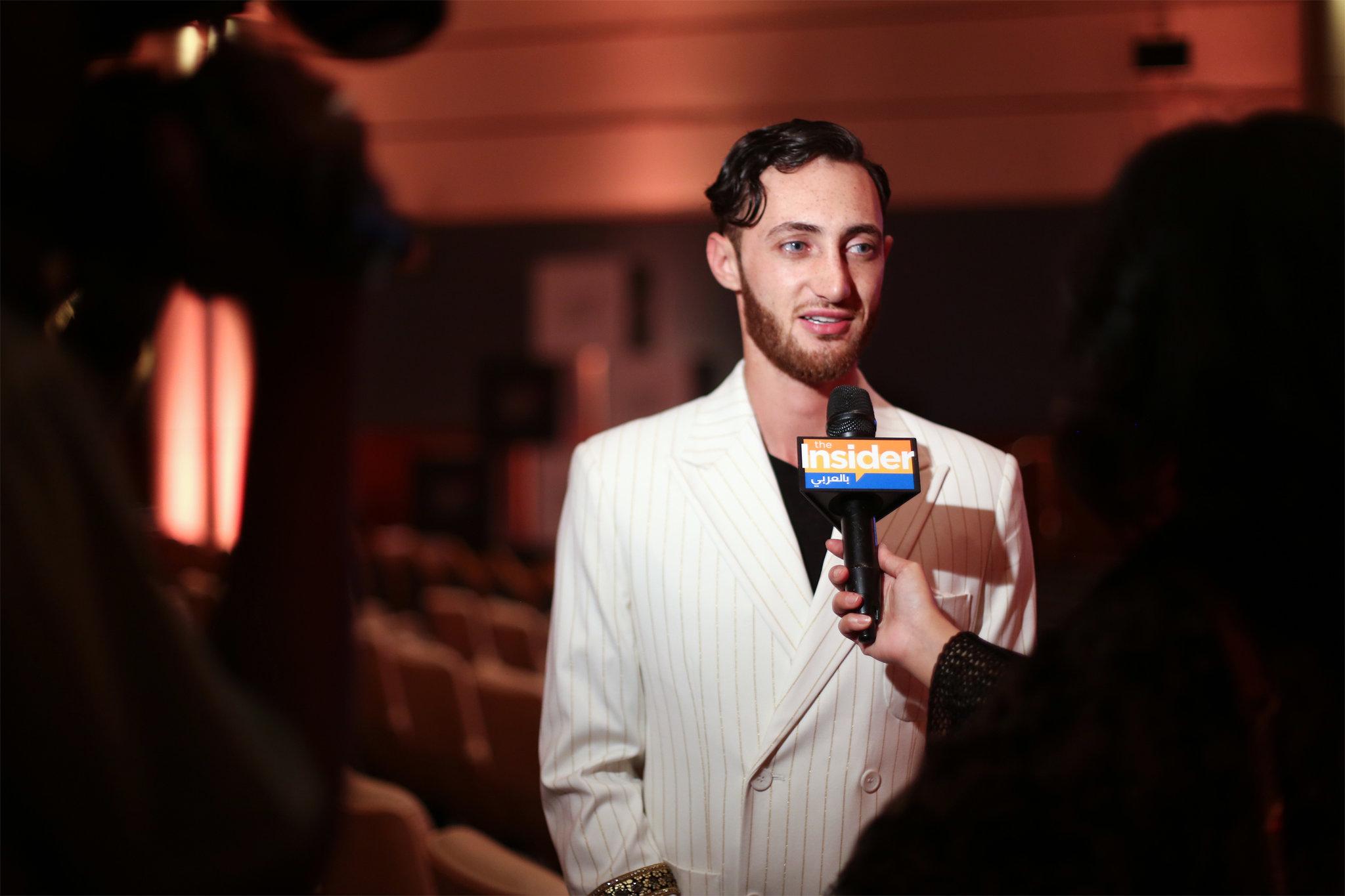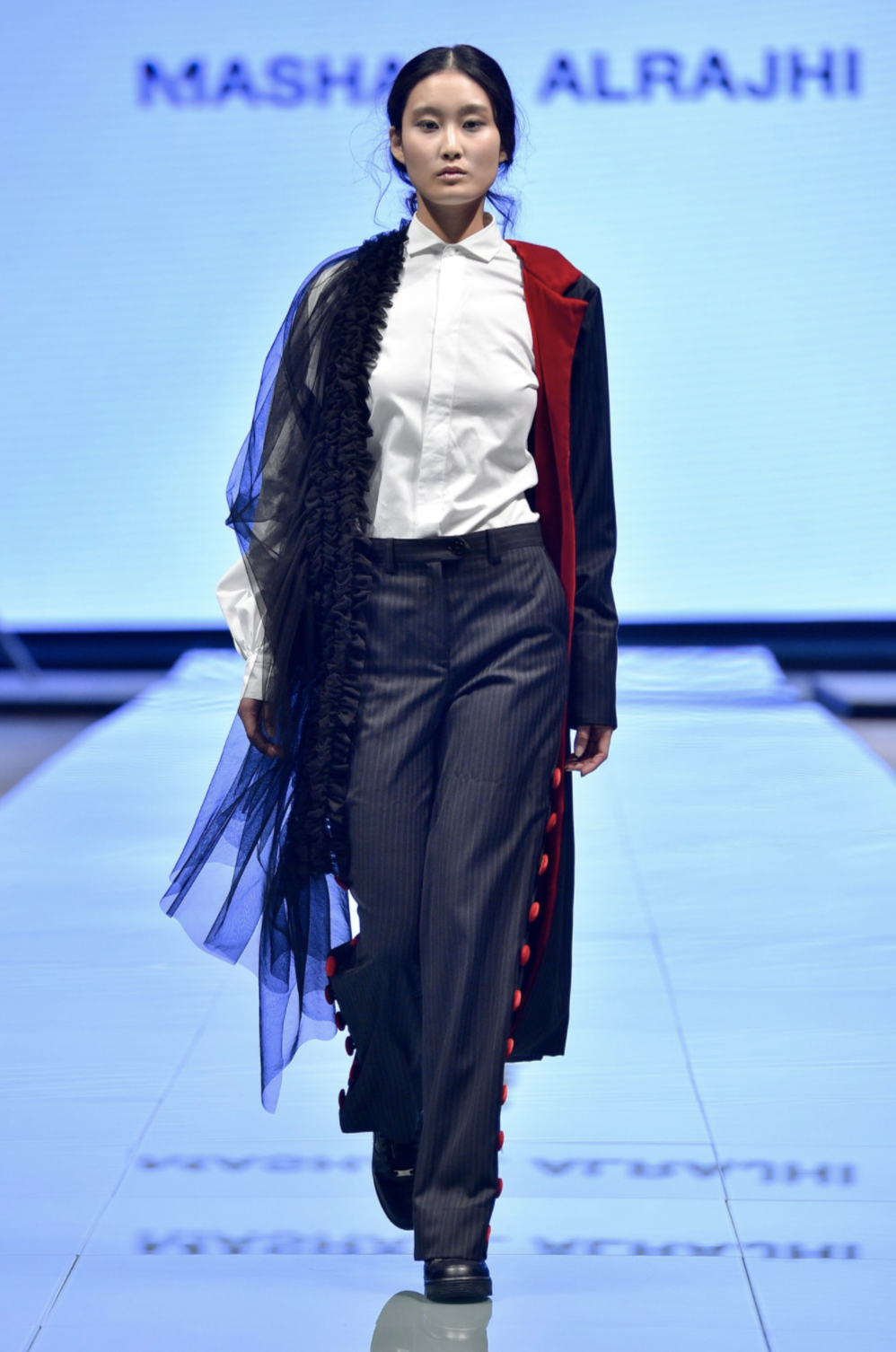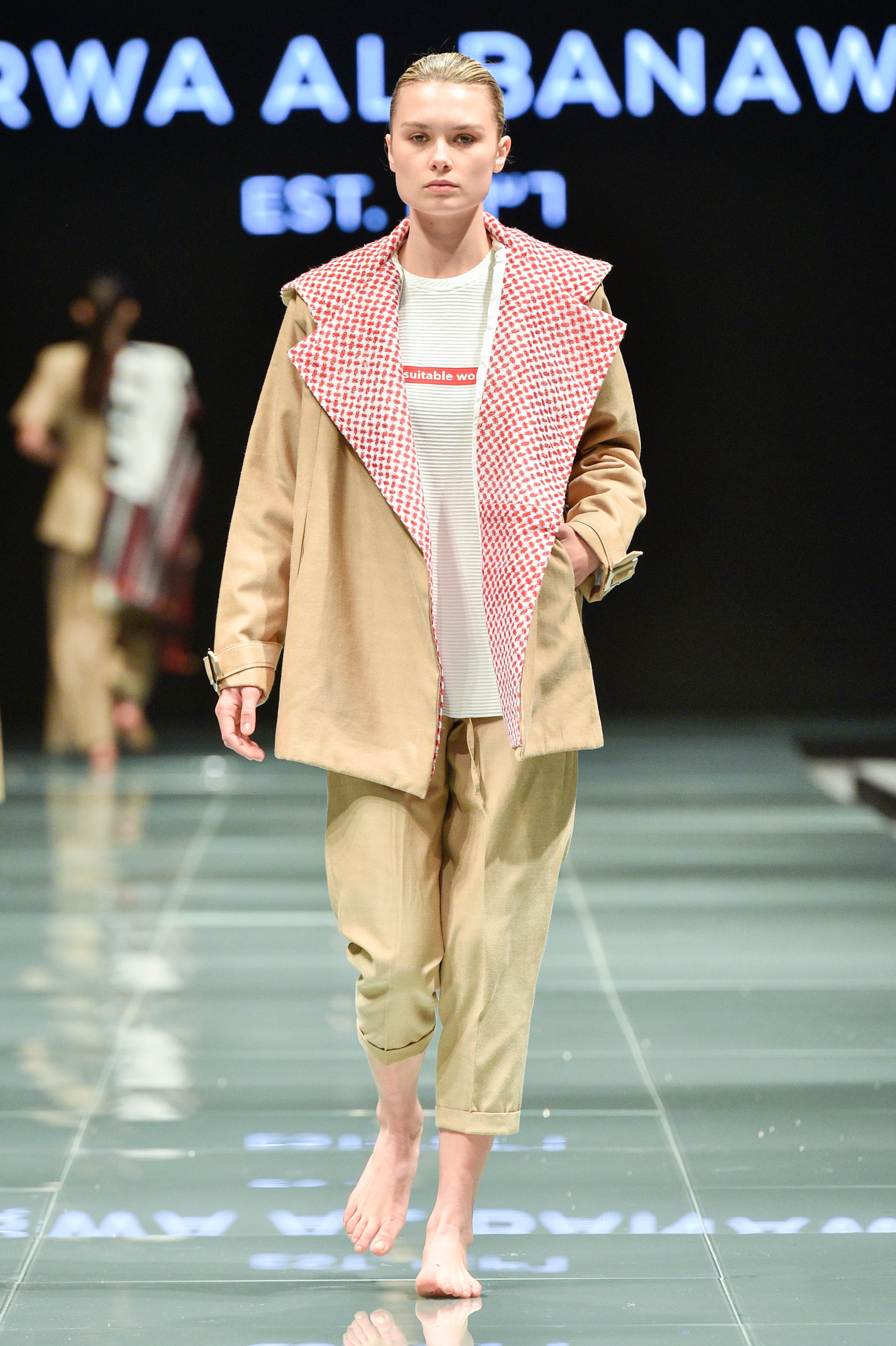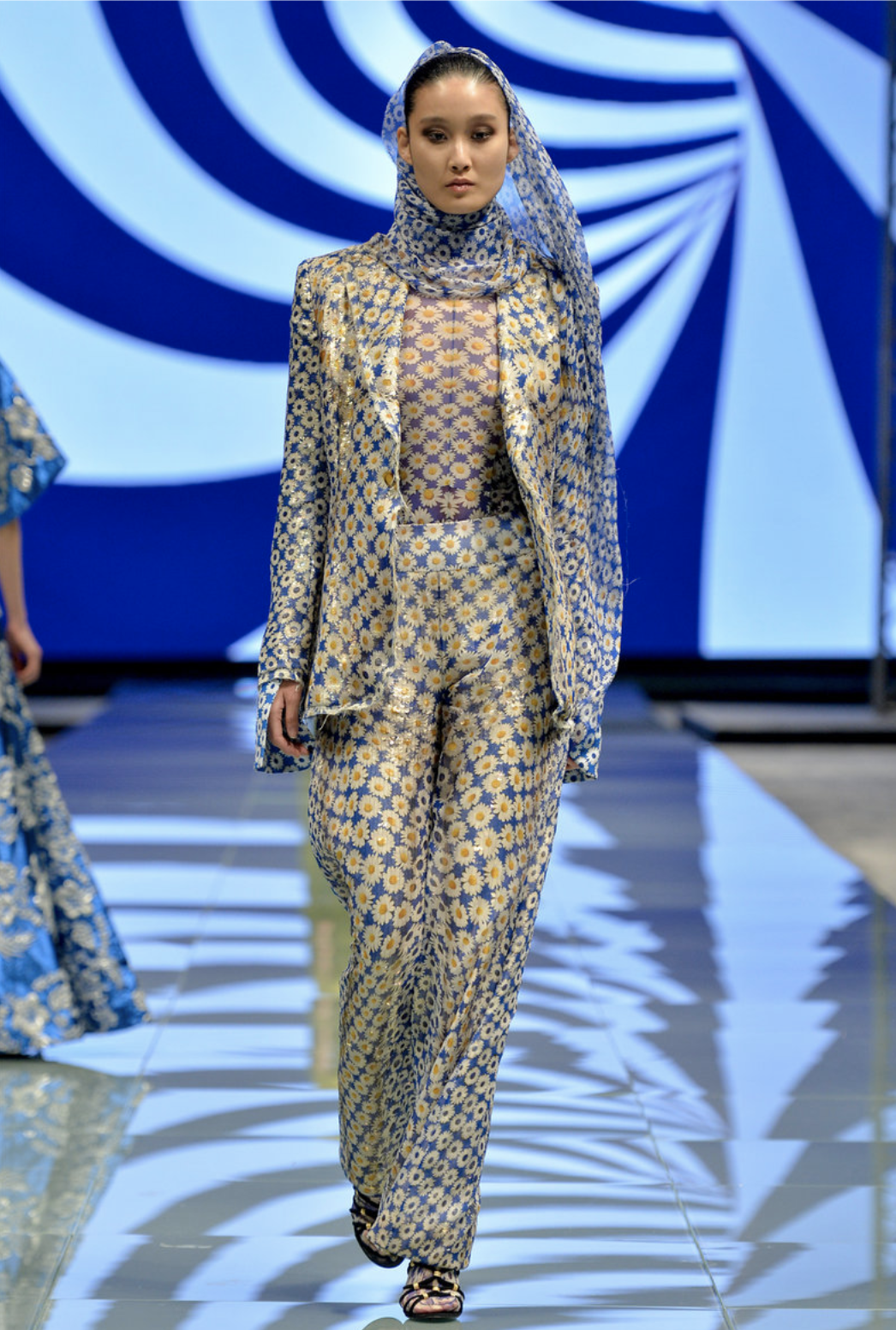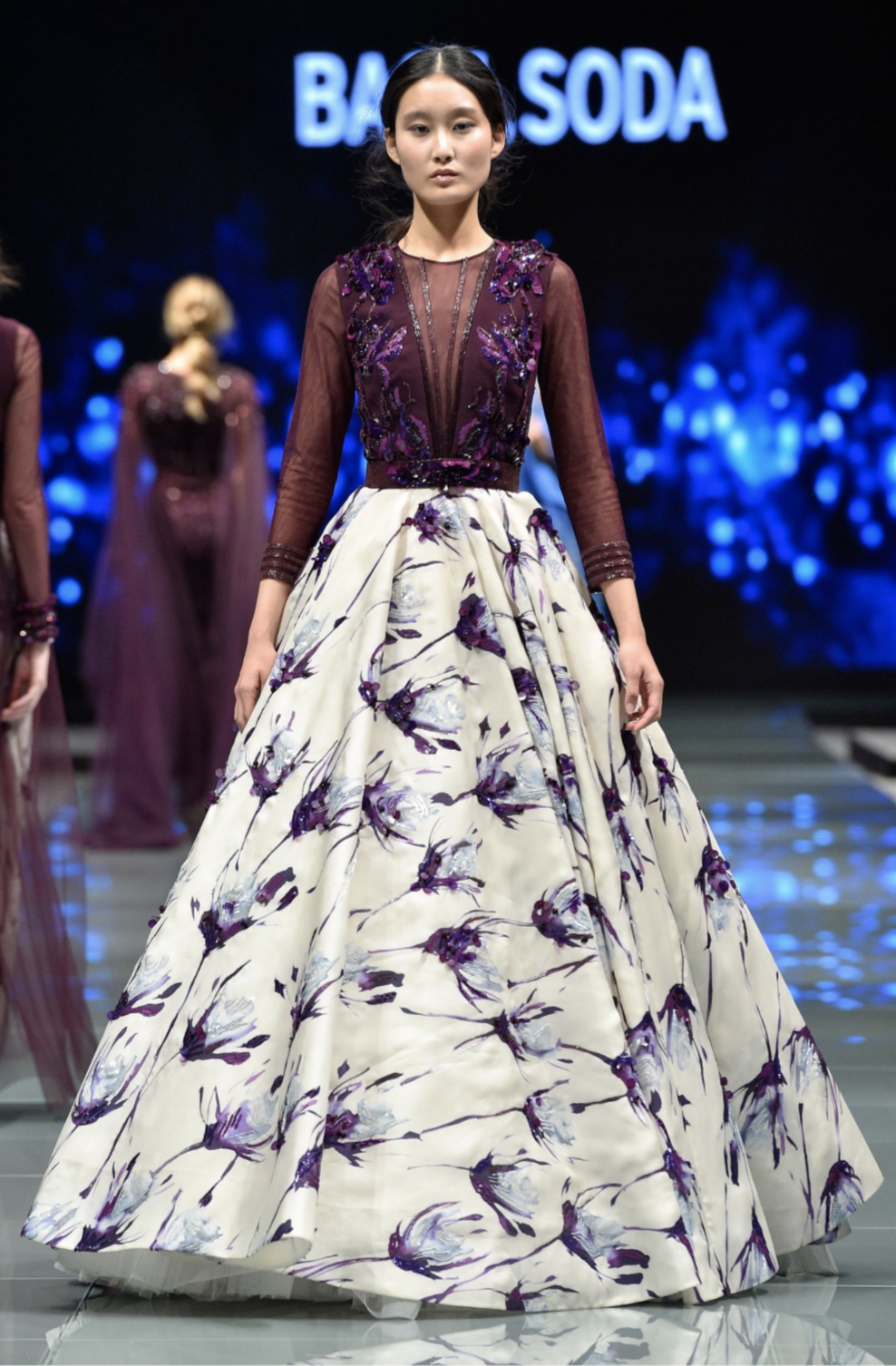Saudi Arabia's First Fashion Week
Last month saw Riyadh’s Ritz-Carlton Hotel host Saudi Arabia's first ever Fashion Week, with Jean Paul Gaultier and Roberto Cavalli headlining the event.
Now, it ought to be noted this event was not wholly out of the blue. Under Crown Prince Mohammed bin Salman, Saudi Arabia has been leaning into progress and modernization. Religious police have been reined in, cinemas and concerts have been reintroduced, and women are allowed back behind the wheel.
A piece by Mashael AlRajhi, who collaborated with Nike on its first runway hijab | Image Via
Yet, the occurrence of a Fashion Week still feels like a major leap for a country where women's fashion is literally regulated by law. A leap whose size is made clear by the fact that the shows themselves were open to women only, with outside photography barred.
The goal of the event was big. The country is looking to posit itself as a Paris or Milan. Of course, it might take a while to get there, but Saudis within the industry feel garnering such recognition is doable. As Layla Issa Abouzeid (Saudi Arabia's director for the Dubai-based Arab Fashion Council (AFC) organizing the event) put it “[when] people go to Paris on the Paris Fashion Week, the hotels are completely fully booked. I want to create the same demand in Saudi Arabia, twice a year. I want to create a platform for the local designers to go worldwide.”
And many designers are appreciating that, including Lebanese creator Naja Saade who travelled to Riyadh to exhibit his couture collection.
“I’m very proud to participate in this first edition of Arab Fashion Week in Saudi Arabia, because it’s a part of the revolution of the women in this country.”
The goal doesn’t stop there. The AFC wants to introduce fashion courses, internships and scholarships to Saudi Arabia and develop a fashion district in Riyadh–a seemingly logical step given Saudi princesses are some of the biggest collectors of haute couture worldwide.
Jacob Abrian, AFC founder and chief executive, spoke of how in the past Arabs have had to leave their countries to have fashion careers, but this event empowers and encourages them to stay. “I was always asking myself, why do us Arabs have to travel abroad to find our future? Why can’t we find our future in our own countries?”
Jacob Abrian, founder & chief executive of the Arab Fashion Council | Image Via
Arwa Al-Banawi, a Dubai-based Saudi designer who displayed a contemporary collection of tailored pieces intertwined with ancient Bedouin references, believes a Saudi Fashion Week could be another step on the road to female empowerment in her country; “It is so important for us that we have our own fashion week—historically I have always shown in Dubai or Paris but as a Saudi woman I really wanted to be a part of this moment,” she said. “Yes it has been the most challenging event I have ever been a part of, but the only way to look is forwards not backward. Next time will be better.”
Clockwise from top left: Designs by Mashael Alrajhi, Arwa Al Banawi, Basil Soda & Jean Paul Gauthier | Images Via
This undercurrent of hope was woven into much of the week. Yes, a Fashion Week is a big step. But it is still just a step, the nation is most certainly not about to steal Paris’ crown as the fashion capital of the world. There were still restrictions on what types of clothes could be exhibited at the show–no cleavage, nothing above the knee and nothing too transparent. And the lack of men and the floor length abayas worn by the guests felt challenging, especially given the fashion and design context.
It certainly seems that Price Salman is steering Saudi Arabia towards more modern and liberal waters, but progress is rarely as quick as one would hope. This week was important, but real change will only stem from shifts behind the scenes. And those less visible transformations can be much, much harder to catalyze. The question is, are the country and its people ready?
Feature Image Via.



